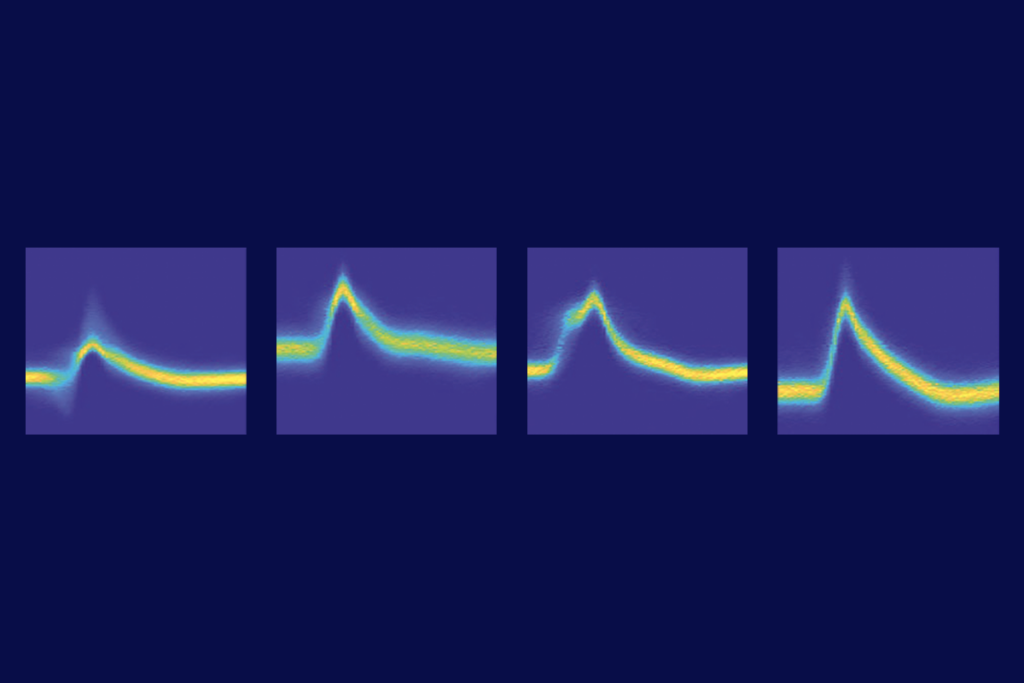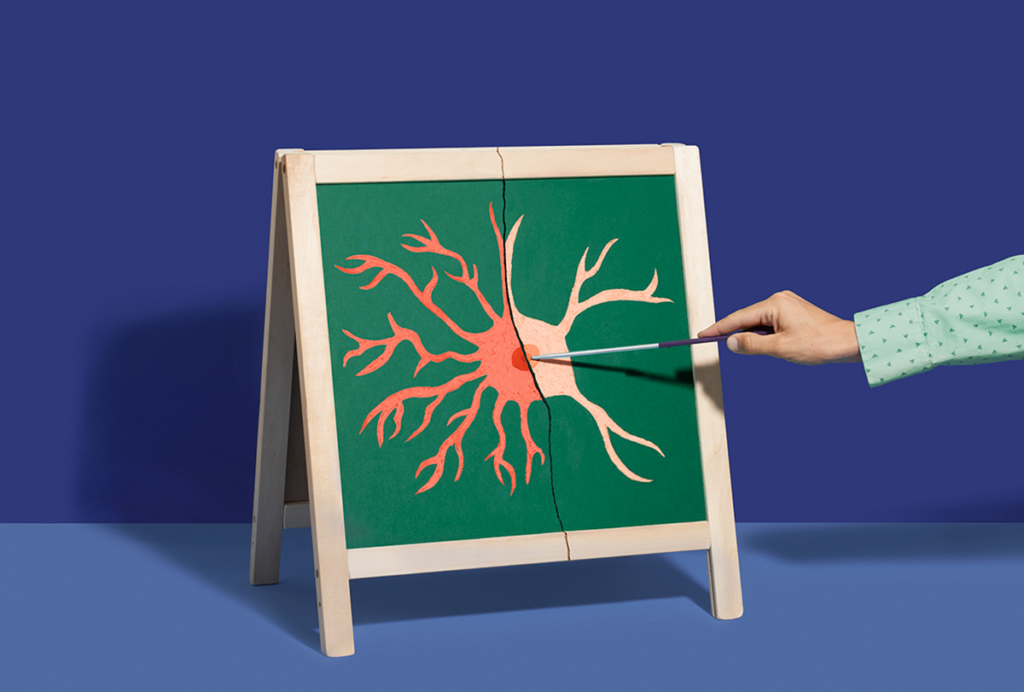IMFAR 2013
Recent articles
IMFAR 2013: Autism or ‘autisms’?
Conversations with researchers at the 2013 International Meeting for Autism Research in San Sebastián, Spain, raised provocative questions about the nature of autism. How do we make sense of its staggering heterogeneity, multiple genetic causes and widespread overlap with other disorders?

IMFAR 2013: Autism or ‘autisms’?
Conversations with researchers at the 2013 International Meeting for Autism Research in San Sebastián, Spain, raised provocative questions about the nature of autism. How do we make sense of its staggering heterogeneity, multiple genetic causes and widespread overlap with other disorders?
Gender differences take center stage at autism conference
Girls with autism carry more mutations than do boys with the disorder, and show greater differences in brain activity and response to social cues, according to several preliminary studies presented at the 2013 International Meeting for Autism Research in San Sebastián, Spain.

Gender differences take center stage at autism conference
Girls with autism carry more mutations than do boys with the disorder, and show greater differences in brain activity and response to social cues, according to several preliminary studies presented at the 2013 International Meeting for Autism Research in San Sebastián, Spain.
Statins improve symptoms of Rett syndrome in mice
Defects in cholesterol metabolism may influence the severity of Rett syndrome, suggesting a treatment for the autism-related disorder, according to research presented Thursday at the 2013 International Meeting for Autism Research in San Sebastián, Spain.

Statins improve symptoms of Rett syndrome in mice
Defects in cholesterol metabolism may influence the severity of Rett syndrome, suggesting a treatment for the autism-related disorder, according to research presented Thursday at the 2013 International Meeting for Autism Research in San Sebastián, Spain.
Scientists home in on key spot in brain for autism risk
By analyzing the expression patterns of nine candidate genes for autism, researchers have identified a population of cells and a select time during fetal development that may be key to the disorder.

Scientists home in on key spot in brain for autism risk
By analyzing the expression patterns of nine candidate genes for autism, researchers have identified a population of cells and a select time during fetal development that may be key to the disorder.
Study links pupillary reflex, heart rate in autism
More than half of children with autism have a delayed pupillary response to light, along with a high heart rate and other physiological features, according an unpublished study presented Thursday at the 2013 International Meeting for Autism Research in San Sebastián, Spain.

Study links pupillary reflex, heart rate in autism
More than half of children with autism have a delayed pupillary response to light, along with a high heart rate and other physiological features, according an unpublished study presented Thursday at the 2013 International Meeting for Autism Research in San Sebastián, Spain.
Reactions from IMFAR 2013
We checked in from the 2013 International Meeting for Autism Research with daily reactions from this year’s attendees.

Reactions from IMFAR 2013
We checked in from the 2013 International Meeting for Autism Research with daily reactions from this year’s attendees.
Short diagnostic test shows high specificity for autism
A ten-minute screen combining a parent questionnaire and home video can detect autism with 90 percent specificity, according to unpublished research presented Thursday at the 2013 International Meeting for Autism Research in San Sebastián, Spain.

Short diagnostic test shows high specificity for autism
A ten-minute screen combining a parent questionnaire and home video can detect autism with 90 percent specificity, according to unpublished research presented Thursday at the 2013 International Meeting for Autism Research in San Sebastián, Spain.
Identity of autism-linked maternal antibodies revealed
Researchers have identified six fetal brain proteins that bind to maternal antibodies, which are thought to trigger changes to the fetal brain and raise the risk of autism. They presented their findings today at the International Meeting for Autism Research in San Sebastián, Spain.

Identity of autism-linked maternal antibodies revealed
Researchers have identified six fetal brain proteins that bind to maternal antibodies, which are thought to trigger changes to the fetal brain and raise the risk of autism. They presented their findings today at the International Meeting for Autism Research in San Sebastián, Spain.
New brain bank set to collect samples for autism research
A new initiative aims to collect brain tissue for autism research, adding welcome resources to the struggling Autism Tissue Program, according to an announcement today at the 2013 International Meeting for Autism Research in San Sebastián, Spain.

New brain bank set to collect samples for autism research
A new initiative aims to collect brain tissue for autism research, adding welcome resources to the struggling Autism Tissue Program, according to an announcement today at the 2013 International Meeting for Autism Research in San Sebastián, Spain.
Reward study questions autism mouse model’s relevance
The BTBR mouse model, an asocial strain often used to study autism, may not be optimal for autism research, suggests an unpublished study presented today at the 2013 International Meeting for Autism Research in San Sebastián, Spain.

Reward study questions autism mouse model’s relevance
The BTBR mouse model, an asocial strain often used to study autism, may not be optimal for autism research, suggests an unpublished study presented today at the 2013 International Meeting for Autism Research in San Sebastián, Spain.
Explore more from The Transmitter
INSAR takes ‘intentional break’ from annual summer webinar series
The International Society for Autism Research cited a need to “thoughtfully reimagine” its popular online program before resuming it in 2026.

INSAR takes ‘intentional break’ from annual summer webinar series
The International Society for Autism Research cited a need to “thoughtfully reimagine” its popular online program before resuming it in 2026.
Null and Noteworthy: Neurons tracking sequences don’t fire in order
Instead, neurons encode the position of sequential items in working memory based on when they fire during ongoing brain wave oscillations—a finding that challenges a long-standing theory.

Null and Noteworthy: Neurons tracking sequences don’t fire in order
Instead, neurons encode the position of sequential items in working memory based on when they fire during ongoing brain wave oscillations—a finding that challenges a long-standing theory.
How to teach this paper: ‘Neurotoxic reactive astrocytes are induced by activated microglia,’ by Liddelow et al. (2017)
Shane Liddelow and his collaborators identified the factors that transform astrocytes from their helpful to harmful form. Their work is a great choice if you want to teach students about glial cell types, cell culture, gene expression or protein measurement.

How to teach this paper: ‘Neurotoxic reactive astrocytes are induced by activated microglia,’ by Liddelow et al. (2017)
Shane Liddelow and his collaborators identified the factors that transform astrocytes from their helpful to harmful form. Their work is a great choice if you want to teach students about glial cell types, cell culture, gene expression or protein measurement.